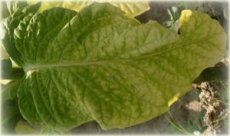Medical expert of the article
New publications
Genetically modified tobacco will replace expensive laboratories for drug production
Last reviewed: 30.06.2025

All iLive content is medically reviewed or fact checked to ensure as much factual accuracy as possible.
We have strict sourcing guidelines and only link to reputable media sites, academic research institutions and, whenever possible, medically peer reviewed studies. Note that the numbers in parentheses ([1], [2], etc.) are clickable links to these studies.
If you feel that any of our content is inaccurate, out-of-date, or otherwise questionable, please select it and press Ctrl + Enter.

S. Scientists at the University of Surrey centre believe it could be used to prevent HIV infection.
The drug was developed as part of the Pharma-Planta project. Its goal was to find cheaper ways to obtain useful compounds that could then form the basis of products available to poor countries. Obtaining antibodies from tobacco is 10-100 times cheaper than the standard method of isolating agents.
Most drugs are made using an expensive fermentation process. But in modified tobacco, the monoclonal antibodies P2G12 that work against HIV are simply grown. After 45 days, the tobacco is harvested, the leaves are crushed, and the antibodies are extracted.
It is known that the safety of antibodies has already been tested on volunteers. The study involved 11 healthy women. Two of them were given antibodies, and the rest were given a placebo. Now scientists will have to test the effectiveness of antibodies in terms of protection against infection.


 [
[